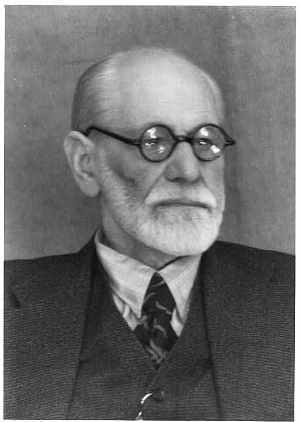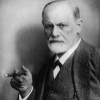Psychological theories of abnormality focus on the individual's psychological processes, including thought patterns, belief systems, and experiences in early life. The main theories that make up psychological approaches to abnormality include psychodynamic theories, behavioural theories, cognitive theories, and humanistic and existential theories.
Psychodynamic theories focus primarily on the idea the unconscious processes are the driving force behind all behaviour, thoughts, and emotions, and that abnormality in any of these areas is the cause of these unconscious processes. Sigmund Freud can be considered the founding father of psychodynamic theories with his psychoanalysis concept.

Freud
Theories related to behaviourism describe behaviour as being the result of learning after reinforcements and punishments. Some methods of this learning develop through classical conditioning, operant conditioning, modelling, and observational learning, with theorists such as Ivan Pavlov and E. L. Thorndike the main proponents involved.
Cognitive theories of abnormality consist of how individuals interpret and give meaning to their experiences. These mainly consist of causal attributions, control beliefs, and dysfunctional assumptions. For instance, if an individual sees something bad happening to them as a result of them being a horrible person (causal attribution), then they may be more prone to depression.
Lastly, humanistic and existential theories involve the individual within society. The ways in which society constrains and burdens people with stress is seen as the driving force behind mental illness due to the fact that it's hypothesized that people will be overwhelmed with their inability to fulfill their desires.
© BrainMass Inc. brainmass.com July 26, 2024, 1:38 am ad1c9bdddf



